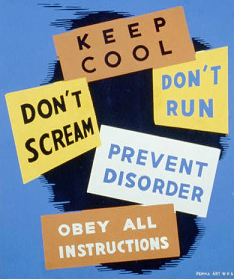As new Comment 10 to Rule 1.2(d) explains, new Rule
1.2(d)(3) was adopted “to address the dilemma facing
a lawyer in Illinois
after the passage
of the Illinois Compassionate Use of Medical
Cannabis Pilot
Program Act.”
The new rule provides that a lawyer may “counsel or assist a client in conduct
expressly permitted by Illinois law that may violate or conflict with federal
or other law, as long as the lawyer advises the client about that federal or
other law and its potential consequences.” The application to the medical
marijuana scenario is obvious: if you have a client who wishes to retain you
for advice or work regarding the client’s operation a dispensary under the
applicable Illinois law, you may now do so as long as you discuss with the
client the potential federal consequences.
But as the comment also makes clear, “paragraph (d)(3) is
not restricted in its application to the marijuana law conflict.” The comment
suggests that other contexts might require special care by the lawyer to advise
the client about conflicts of law. It seems to imply that the drift of the
“marijuana conflict” is obvious enough, but that other conflicts between state
and federal law might not be so. That’s true as far as it goes, but is anything
about the practice of law truly obvious? It would seem prudent for a lawyer
whose practice in any way touches the “marijuana conflict” to stay on top of
the issue, perhaps monitoring developments in it via an RSS feed, Google Alert,
or an IFTTT. That goes,
too, for any other state-federal disparity. It might not be enough just to
advise a client about that disparity once, since the law on such things may be
evolving; the better practice would be to keep the client, and the lawyer
herself, updated as constantly as possible.
It pays to remember, too, that the rest of Rule 1.2(d)
continues to apply as well. It is still inconsistent with the rule for a lawyer
to counsel a client to engage, or assist a client in engaging, in conduct the
lawyer knows is criminal or fraudulent; provided that a lawyer can consult with
the client about the consequences of a proposed action, and can undertake a
good-faith effort to determine the scope or meaning of applicable law. As in so
many other rules, a key word here is “knows.” When ARDC lawyers investigate
allegations that a lawyer has violated Rule 1.2(d), they consider carefully
whether the lawyer knew that the client was engaging in crime or fraud, and
they do so by looking at all the circumstances surrounding the lawyer’s
conduct. Knowledge can be proved inferentially in discipline cases, so
discipline prosecutors look for factual inferences that show a lawyer acted
knowingly.
This should not be a problem for a lawyer when her work for
a client involves, say, applications for permits or licenses to dispense
medical marijuana. But there are, of course, grayer areas. What if a client is
looking to avoid some aspect of a licensure scheme, one the client feels is
burdensome or arguably inapplicable? Can the lawyer really say she knows
whether the client’s conduct violates the law? If the client deviates and veers
toward more clearly illegal conduct, will the lawyer know of it? Will someone
say she did?
Mitigating the risk here means spelling things out. It means
advising the client clearly, and ideally in writing, on the scope of applicable
legal provisions. It means setting forth the scope and limitations of the
lawyer’s conduct, stating specifically what the lawyer is and is not advising
the client about. These disclosures can be made in a retainer letter, a
separate “opinion letter,” or some other document; but they must be made, in
order to best counter any suggestion that the lawyer knew of, and countenanced,
a crime or fraud.

